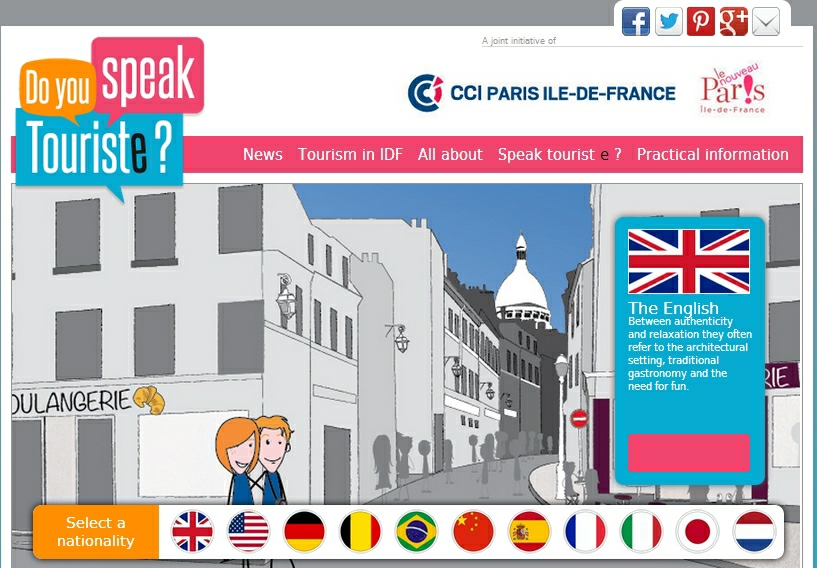Tactile Brazilians and Other French Stereotypes
The French tourism board is trying to help retailers, restaurateurs, hoteliers, and taxi drivers be more welcoming to visitors. But the "Do You Speak Touriste?" website provides stereotypes that some may find offensive.
According to The Telegraph, the tourism guide (downloadable in French) offers these helpful hints for French business owners (note that the punctuation is European):
The guide informs Parisians that the British "like to be called by their first name", spend an average of 145 euros (£124) per person per day – more than their American counterparts – and eat breakfast from 7.30-8.30am, lunch at 12-1pm and supper at 6-7pm.
They seek a mixture of "authenticity and relaxedness", expect smiling and friendly staff" and appreciate "architecture, traditional gastronomy and the need for a playful (approach to culture)."
The Japanese are the biggest spenders – 186 euros per tourist per day – but need constant reassurance and are "discreet but demanding". "They never complain straight away when they are not satisfied but will criticise once back in their own country."
The Chinese have an "idealised and romantic" view of Paris, and come "above all for luxury shopping."
Brazilians, meanwhile are "easily tactile", expect a "totally poetic experience" and spend more than the British, around 166 euros per day.
Parisians are told that cash-strapped Spaniards are on the "lookout for freebies" and expect you to speak their language, while Italians are delighted if you are nice to their children, like "going on excursions" but are "impatient tourists".
Perhaps the trickiest visitors of all, judging by the guide, are the French themselves, described as "particularly demanding" guests who above all "don't want to be considered as tourists".
Jeanerre Blat, general director of the Paris area tourist board, explained the board's philosophy:
"The aim is to fight against the poor reputation for welcome in Paris and the Paris area. You don't welcome a Japanese tourist the same way as an Italian one. There are codes to take into account, so you have to adapt."
Discussion Starters:
- What's the value of stereotyping? In other words, what's the value of this guidance for French business owners?
- Looking at the examples of nationalities above, are you more offended by some than by others? Which and why? Or do you find none offensive?
- Could the tourism board have met its objectives in another way? If so, how?
- Before The Telegraph paragraph, I wrote that the punctuation is European. Revise it to meet American standards.
